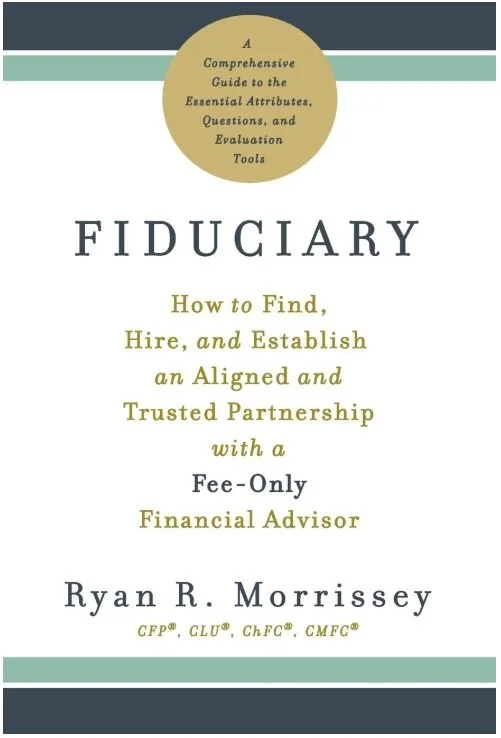7 Most Frequently Asked Social Security Questions
Planning for retirement can be overwhelming, and the process of collecting Social Security benefits is no exception. As someone who focuses on helping you navigate these tricky waters, I understand how challenging it can be.
So, what are the most frequently asked questions about Social Security? Let’s dive into some key points that will help you make informed decisions.
1. When Am I Eligible to Collect Social Security Benefits?
There are several ways you can begin collecting Social Security benefits, but eligibility depends on when you start and your work history.
Disability Benefits: If you qualify for Social Security disability, you may receive your full Social Security retirement benefit earlier than the normal retirement age, but there’s a lengthy approval process that can take up to 18 months.
Full Retirement Age (FRA): For those born in 1960 or later, FRA is 67. If you were born before 1960, the FRA will vary slightly based on your birth year.
Early Retirement: You can begin collecting Social Security as early as age 62. However, your benefit will be reduced by roughly 5/9ths of a percent for each month before your FRA. For those who start collecting at age 62, benefits could be reduced to as little as 70-75% of your full benefit.
Delayed Retirement: On the other hand, if you choose to delay collecting Social Security benefits past your FRA (up to age 70), you’ll receive an 8% annual increase in your benefit. For example, if your FRA is 67 and you wait until 70, you’ll receive a 24% increase in your benefits.
2. How Much Will I Earn from Social Security?
Your Social Security benefit depends on several factors, including when you start collecting and your earnings history. Social Security uses a formula based on your highest 35 years of earnings.
If you have fewer than 35 years of earnings, the system will use zeros for those years, which could reduce your benefit. Working longer, especially in higher-earning years, can increase your benefits. And don't forget about cost-of-living adjustments (COLA), which are applied annually and can increase your benefits.
It’s crucial to check your Social Security statement regularly to ensure your earnings record is correct. Once you start receiving benefits, you can’t go back, so it’s important to get it right from the start.
3. What Are Spousal Benefits?
Spousal benefits allow a spouse to collect up to 50% of the higher-earning spouse’s Social Security benefit, provided certain conditions are met:
Your spouse must have started collecting benefits.
You must be at least FRA to receive the full 50%.
If your spouse hasn’t started collecting yet, you won’t be able to claim the full spousal benefit. However, you can still start collecting your own Social Security benefits as early as age 62, with the reduced amount.
4. What About Divorced Spousal Benefits?
If you're divorced, you may still be eligible for Social Security benefits based on your ex-spouse’s earnings, provided you were married for at least 10 years.
The rules are similar to spousal benefits, and remarrying won’t affect your eligibility for benefits from your ex-spouse.
If you’re remarried, you may collect benefits based on your new spouse’s earnings instead. Don’t worry if your ex-spouse has remarried or had multiple marriages—these factors don’t impact your benefits.
5. Can I Work and Collect Social Security?
Yes, you can, but there are limitations if you’re collecting Social Security before your FRA. For 2024, the earnings limit is $22,320 annually, or $1,860 per month. If you earn above that threshold, Social Security will reduce your benefit by $1 for every $2 you earn over the limit.
However, once you reach FRA, the earnings limit no longer applies. At that point, you can earn as much as you want and still receive your full benefit.
6. Is Social Security Taxable?
For most people, yes. Social Security benefits are taxable, but the amount depends on your total income. If your combined income (including half of your Social Security benefits) exceeds certain thresholds, a portion of your benefits will be taxed.
Here’s a quick breakdown:
For individuals, if your combined income is below $25,000, your Social Security isn’t taxed.
For married couples, if your combined income is below $32,000, your Social Security isn’t taxed.
Above these thresholds, up to 85% of your Social Security benefits may be taxed, depending on your income level.
7. How Do I Apply for Social Security Benefits?
The easiest way to apply for Social Security is online through the Social Security website. You can create an account, check your earnings record, and apply for benefits directly. It’s also helpful to use the calculators available on the site to explore your options.
You can apply up to four months in advance of when you want your benefits to begin. Just keep in mind that your first payment will be delayed by one month. For example, if you want your benefits to start in July, you'll receive your first payment in August.
Closing Thoughts
Understanding Social Security is crucial for planning your retirement. The process can seem complex, but with the right information, you can make informed decisions that align with your retirement goals.
If you need help, remember to reach out to me, or consider signing up for my comprehensive online course to get a deeper understanding of how to plan your ideal retirement.
If you have a question or topic that you’d like to have considered for a future episode/blog post, you can request it by going to www.retirewithryan.com and clicking on ask a question.
As always, have a great day, a better week, and I look forward to talking with you on the next blog post, podcast, YouTube video, or wherever we have the pleasure of connecting!
Written by Ryan Morrissey
Founder & CEO of Morrissey Wealth Management
Host of the Retire with Ryan Podcast



